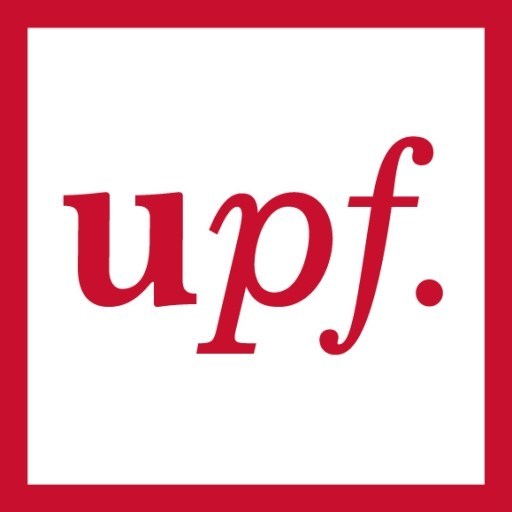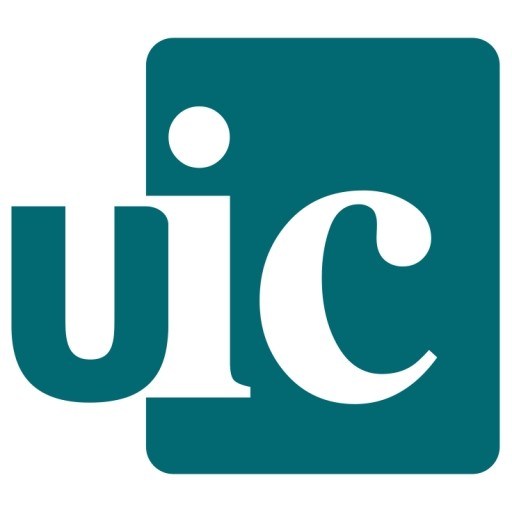Photos of university
Political Philosophy at Pompeu Fabra University offers students an in-depth exploration of the fundamental questions about politics, power, justice, and the role of the state. This program provides a comprehensive understanding of the historical development and contemporary debates within political thought, integrating classical theories with modern approaches. Students will examine the ideas of influential philosophers, analyze political ideologies, and evaluate the ethical principles underlying political systems. The curriculum combines rigorous philosophical analysis with practical insights into current political issues, fostering critical thinking and argumentative skills essential for engaging with complex societal challenges. Throughout the program, students will engage in a variety of learning activities, including lectures, seminars, and individual research projects, guided by expert faculty members. The program also emphasizes interdisciplinary approaches, encouraging students to consider economic, social, and cultural dimensions of political phenomena. Equipped with these tools, graduates will be prepared for careers in academia, public policy, political consultancy, journalism, and international organizations. The degree offers a broad intellectual foundation for those interested in understanding and shaping the political landscape, emphasizing ethical considerations and democratic principles. The multicultural environment of Pompeu Fabra University enriches the learning experience, exposing students to diverse viewpoints and fostering a global perspective on political issues. Upon completion, graduates will possess a nuanced understanding of political philosophy that enables them to critically assess political theories and contribute meaningfully to debates on governance, rights, and social justice. This program is ideal for students passionate about philosophy, politics, and society, seeking to make a positive impact through knowledge and critical reflection.
Modules 1 and 4 are compulsory for all students. Additionally, students must choose 15 ECTS credits from module 2 and 10 ECTS credits from module 3.
Module 1: Theory and Methodology (15 ECTS credits)
- Main Research Themes and Methods in Political Philosophy (Camil Ungureanu, English). 5 ECTS credits. 1st Term.
- Modern Political Philosophy (Andrew Williams, English). 5 ECTS credits. 1st Term.
- Contemporary Political Philosophy (Sonia Arribas and visiting professor Marina Garcés, English). 5 ECTS credits. 1st-2nd Term.
Module 2: Optional courses in Political Theory and Philosophy (choose 15 ECTS credits)
- Global Ethics (Serena Olsaretti, English). 5 ECTS credits. 1st Term.
- Distributive Justice Today (Paula Casal, English). 5 ECTS. 2nd Term.
- Issues in Ethics (Sonia Arribas, Spanish). 5 ECTS credits. 3rd Term.
- Political Theory in the 21st Century (visiting professor: Alessandro Ferrara, English). 5 ECTS credits. 1st Term.
- Nationalism Today (Klaus-Jürgen Nagel, English). 5 ECTS credits. 2nd Term.
- Democracy and Political Liberalism: theoretical and institutional features (Ferran Requejo, English). 5 ECTS credits. 3rd Term.
Module 3: Optional Courses in Political Philosophy, Social Theory and the Social Sciences (choose 10 ECTS credits)
- Federalism and Federations: political theory and comparative politics (Klaus-Jürgen Nagel, English). 5 ECTS credits. 2nd Term.
- Diversity and Immigration Policies (Ricard Zapata, English). 5 ECTS credits. 1st Term.
- The current financial and economic crises and their impact on the social wellbeing of populations (Vicenç Navarro, English). 5 ECTS credits. 1st Term.
- Current Research on Diverse Democracies (visiting professor: Peter A. Kraus, English). 5 ECTS credits. 2nd-3rd Term.
- Social Psychological Approaches to Society and the Individual (Verònica Benet-Martínez, English). 5 ECTS. 1st Term.
- Global Law, Justice and Democracy (Josep Lluís Martí, English). 4 ECTS credits. 2nd Term.
- Law and Gender Policies (Marisa Iglesias and Chelo Chacartegui, English). 4 ECTS credits. 2nd Term.
- International Relations (Caterina Garcia, Spanish). 4 ECTS. 2nd Term.
- Empire Formation and Disintegration in the Modern and Contemporary World (Josep Maria Delgado, Spanish). 5 ECTS credits. 2nd Term.
- The Construction of State (Joaquim Albareda, Spanish). 5 ECTS. 1st Term.
- Advanced Themes in Philosophy (Antonino Firenze, Spanish). 5 ECTS. 2nd Term.
- Discourse Analysis II: Socio-cognitive features (Teun A. Van Dijk and E. Atienza, Spanish). 5 ECTS credits. 2nd Term.
- Health and Inequality (Joan Benach, English). 5 ECTS credits. 1st Term.
Module 4
- Master Thesis Seminar (1 ECTS, Serena Olsaretti and Camil Ungureanu). 2nd Term.
- Final Research Paper (19 ECTS credits). 3rd Term.
Requirements
- Official undergraduate degree/diploma and the academic transcript of the accredited official training with the average grade at the university of origin.
- Curriculum Vitae in English.
- A letter of motivation (2 pages maximum).
- Two letters of recommendation (academic).
- Identity Card or Passport.
- Proof of English language (level B2). English: official Cambridge certificates (FCE or higher), with results of 6.0 at IELTS or 100 at TOEFL (iBT), will be accepted, among others.
- Professional experience in any of the fields related to the master's programme.(optional)
- Research experience.(optional)
- Teaching experience. (optional)
- Additional academic training in areas related to the master's programme.(optional)
Scholarships
- GRAL - General scholarships for students enrolled on post-compulsory studies.
- MATRC - Financial credential for the purposes of processing university enrolments without prior payment of the public prices for the academic services.
- UPF - Tuition fee scholarship for university master's degree students
- Global Education
Political Philosophy at Pompeu Fabra University offers students an in-depth exploration of fundamental questions concerning political ideas, systems, and practices. The program is designed to provide a comprehensive understanding of political concepts such as democracy, justice, authority, rights, and freedom, examining their development and application throughout history and in contemporary society. Students engage with classical philosophers like Plato, Aristotle, Hobbes, Locke, and Kant, as well as modern political theorists, fostering critical thinking and analytical skills essential for understanding and evaluating political arguments and ideologies.
The curriculum is interdisciplinary, integrating philosophy, political science, and history to give students a multifaceted perspective on political issues. It includes courses on political theory, ethics, philosophy of law, and comparative politics, enabling students to analyze various political systems and ideologies critically. The program emphasizes the importance of ethical reflection and logical reasoning, encouraging students to develop their own reasoned positions on complex political questions.
Students also gain practical skills through seminars, workshops, and research projects, preparing them for careers in academia, public policy, civil service, or activism. The university provides access to extensive resources, including libraries, online databases, and experienced faculty members specializing in political philosophy. The program's international orientation allows for engagement with global political debates and issues.
Moreover, Pompeu Fabra University promotes a dynamic learning environment that fosters debate, collaboration, and critical inquiry. Students are encouraged to participate in conferences, internships, and exchanges with partner universities worldwide, broadening their cultural and academic horizons. The graduate profile emphasizes analytical rigor, ethical awareness, and the ability to communicate complex ideas effectively.
In conclusion, the Political Philosophy program at Pompeu Fabra University is dedicated to understanding the philosophical foundations of political life and empowering students to contribute thoughtfully to societal debates and policy-making. The program prepares graduates with the intellectual tools necessary for meaningful engagement in a rapidly changing political landscape, fostering responsible and informed citizenship while also nurturing academic and professional development.





